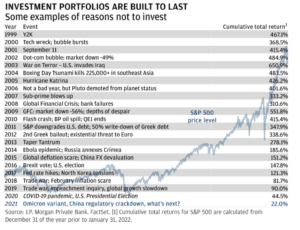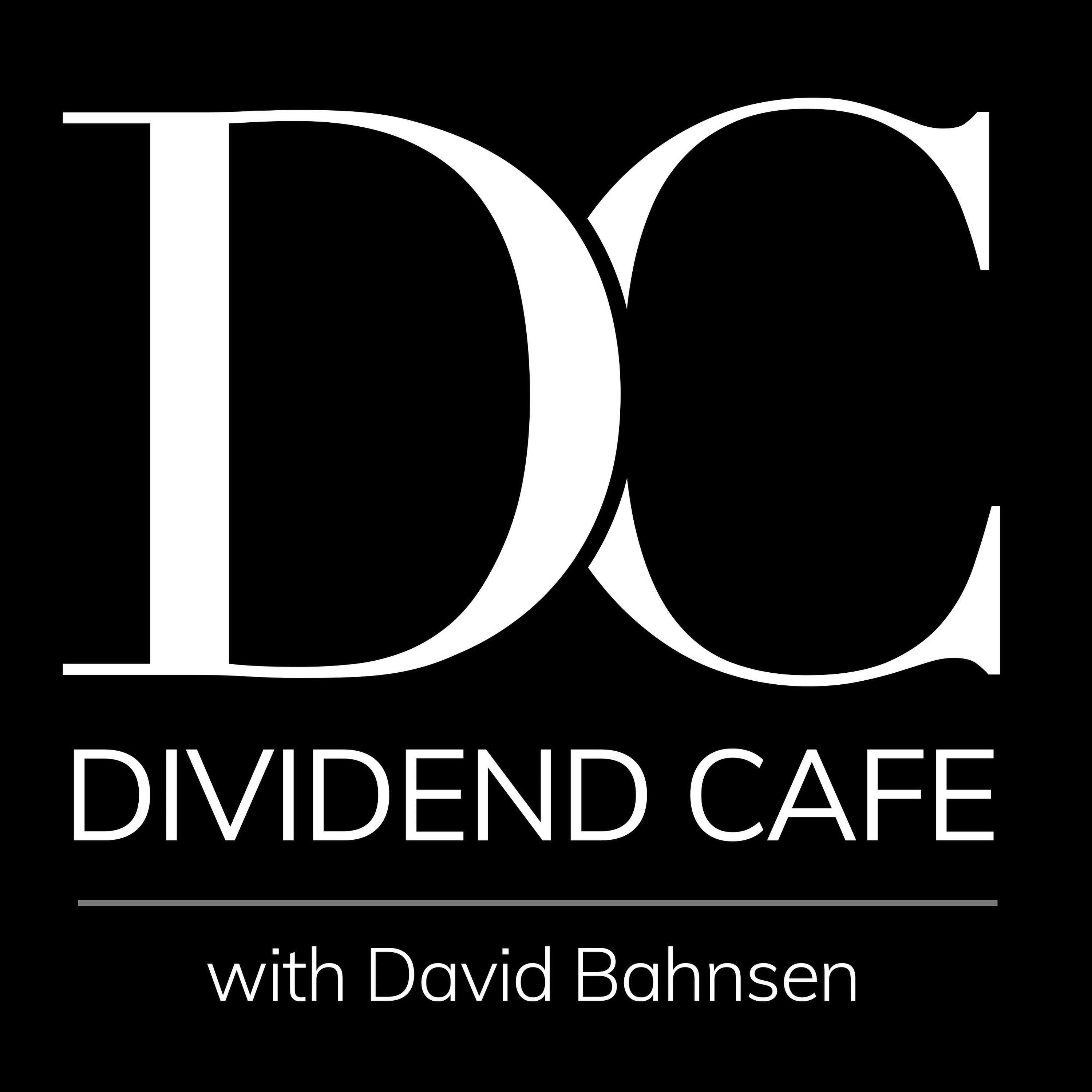Dear Valued Clients and Friends,
I had fun writing today’s Dividend Cafe, and I think you may very well have fun reading it. I also think some of you may be mad at me for it. I hope I am wrong. I believe there are a multitude of messages in the Dividend Cafe this week that are vital for investors in this current era and the one that is to come. I also feel these messages are timely. Jump on in …
|
Subscribe on |
The earlier innings of this madness
The most interesting and notable part of market distress in 2022 is no longer the unfathomable carnage in the “froth” of 2020/2021 (i.e., so-called SPACs, hot tech stocks, pandemic “new economy innovation,” and any of the other names for what is essentially best referred to as “shiny objects”). The 70-90% collapse in various electric vehicle plays, incomprehensible technology aspirations, and all sorts of other media darlings is not a matter of “oversold conditions” or investor emotional panics; it is just the inevitable result of what happens when everyone loses their damn minds.
People do not lose their minds because a charlatan got to them. They do not buy into these “popular delusions and madness of the crowds” because they are bad people; they do it because they are human beings, and human nature is a failed investor. It confuses hope for strategy all the time, and it has almost no defenses available in the human psyche against the irresistible pull of what seems like easy money or what seems like their peers benefitting from something they are not benefitting from. “FOMO” (fear of missing out) was called “covetousness” on Mount Sinai, and all I can say is that I believe it will be an investor behavior I have to work against for the rest of my life.
It should be no surprise that the initial pain and suffering came to those who most believed in the most unbelievable things. Saying that we have seen this movie before throughout history is unhelpful because I promise you we will see this movie again. And it will follow the same storyline in the next sequel as it did in the prior dozen versions … a delusional market narrative will go to the moon, only to be followed by painstaking attempts to intellectually rationalize it. And then the people who can least afford such insanity will be blown up. Rinse and repeat.
Round Two
This escapade did not end with the evisceration of “shiny objects” … The pain spread in Q2 to truly fantastic business enterprises of very high growth expectations who not only had to suffer from the gravitational pull downward from their unsustainable valuations but also dared to not execute with perfection and infallibility in their market position. Ginormous streaming, social media, and e-commerce companies have been punished for sober reality. And the massive dips in the FAANG group have not led to anything close to a “buy the dip” period (yet). Quite the contrary!
At the bottom is a dead whale on the top?
My friend, Louis Gave, pointed out in a recent bulletin that investors seem to be waiting on a “whale” to come to the surface as the final victim of this market sell-off, signaling the bottom and allowing risk-takers to emerge from this with a new look on life.
He suggested the Euro could be that victim, making new lows against the surging dollar, seeing various sovereign bond spreads widen, and managing a Russia/Ukraine/NATO crisis that surely isn’t good for economic fundamentals. But, as Louie points out, the European banks are behaving quite fine, thank you very much. They aren’t great, but they aren’t acting like a Lehman waiting to interrupt your Sunday night broadcasting on Bloomberg or CNBC. I suspect the markets got tired of the false alarms the European banks gave us at so many points over the last 12 years.
Louie suggests the “whale” may be the entire crypto space, as $1.5 trillion of wealth destruction has taken place thus far, with no real value metric able to argue for its imminent recovery. Crypto dropping 60% was harmless when barely anyone owned it, but the success of pulling in a more mass democratic ownership base has meant real systemic “whale” risk for the crypto space.
Not Bright side and Bright Side
Louie says what is coming next is the “age of lawyers” – meaning the small and vulnerable investors who have had their life savings decimated by crypto are about to be a part of a gazillion class action lawsuits. The politicians and regulators and so forth who have been mostly hands-off in this space so far are not likely to stay on the sidelines in the midst of this kind of carnage. What that does to the crypto space is anyone’s guess, and I have no interest in making predictions about the inherently unpredictable (or investing in the inherently unpredictable, either). What I do know is that there has been real carnage in what became a huge space (crypto), and once the carnage became real, we don’t have a lot of precedent in our country for just letting people take losses. Regulation. Subsidization. Oversight. Intervention. I just think this is going to play out in ways people may not expect.
But I do believe there is a bright side here: I think SOME of the labor market deterioration of the last year – SOME – has been related to people’s paper gains in crypto and shiny objects. And I think we are likely to see some folks, on the margin, coming back to work. And that is good. It is good for them, and it is good for us. Because a working society is a happier society.
What about everything else?
If there is 20-40% more of a drop in crypto (and I am not predicting such), I think Louie is right that crypto will be the “surfaced whale” of this cycle. The largest victim in this era of Fed-fueled speculation madness will be crypto, it will bode poorly for growth stocks, and it will wash out a large aspect of the American economy. And then everything else may very well be more investible.
But is everything else happy and free? Or are there other economic overhangs that are simply beyond the prior paragraph’s discussions of excess, madness, and delusion? Really, that is the subject we have to tackle.
Predicting 20 of the last 2 Bear Markets
One of the things that has always angered me about perma-bears is how much they diminish the credibility of the few things they actually get right. When one gets something wrong so often or has an incentive structure that is so conflicted with telling the truth that people no longer listen, it does not bode well for the things one may have to say that are, well, true.
Right now I find myself with many folks I respect intellectually who are quite concerned about this or that or the other. Granted, some are calling for a hyperinflationary devastation and some a debt-deflation explosion, and it does not seem to occur to folks that having both things at once is not exactly possible, but my point is – there are some scared people out there.
My problem is not that I am not scared – I write every week about what I believe to be the problems and the solutions in what we face. My beef is with those who seem to have no humility whatsoever having gotten things wrong forever. I do not know if commodity prices have topped, if the Fed will now be Paul Volcker or Mario Draghi, if Putin will nuke Europe or become a bit player on the world stage or if the supply side challenges in the economy will become demand side, etc.
I only know this – all such economic and geopolitical prognosticating requires humility, not hubris because anyone who has been engaged in such for long has a slew of things they have gotten wrong. And those who are in that charlatan class of perma-bears have really, really gotten it wrong.
Where are we
The bulk of short-term market concerns and economic concerns that transcend the aforementioned re-pricing of excess, froth, and madness come down to expectations for the Fed to normalize monetary policy without breaking the economy. “Short term” here need not be limited to the past week or the next week but could be used to describe a period of a year or two. The expectations for how this plays out range from:
- Jerome Powell is the new Paul Volcker, and he will tighten the economy into a near depression until inflation is under control, to …
- Powell will quit tightening and the onset of higher unemployment, or wider credit spreads, or a dropping stock market, or a strengthening U.S. dollar, or problematic governmental debt service, or any number of reasons that could force capitulation, to …
- Powell quitting early invites hyperinflation, or debt deflation, to …
- Powell staying tight for too long invites hyperinflation, or debt deflation, to …
- We are going to become Japan, to …
- We are going to become the opposite of Japan
I think you get the idea. The only agreement in this group is that things are going to be really bad. Why, how, and when are all variable disagreements.
The good and the bad
Almost everything happening right now has an upside and a downside.
The dollar is rallying for a lot of reasons, and I love a strong dollar. But some of the reasons it is rallying are not the good ones – they have to do with the structural impediments of competitive currencies and economic regions.
I do favor a normalized monetary policy as I favor a less interventionist Fed, less distortion in financial markets, optimal resource allocation that is hindered by monetary accommodation, and furthermore, a tail risk weapon for the Fed to have in the case of, you know, a tail risk event. And yet, the path to a normalized monetary policy is wrought with uncertainty.
I like excess getting purged out of the markets, yet I recognize aftershock events from a whale getting beached.
I can go on and on – nothing in the list of economic conversation topics is one-sided right now – everything carries a cost and a benefit.
My clarifying, muddying views
I cannot say when Powell blinks, what happens until then, what happens after then, and all the other things folks are sitting around debating. What I can say is that those with the boldest of opinions about what will happen have been the most wrong about what will happen since around 1971. Do with that what you wish.
Bond yields are the best financial market signal God ever gave us, and I believe the bulk of bad economic analysis I see and bad economic forecasting I see comes from people who have decided they know more than the bond market. Of course, I do beg the question here, and I understand that because sometimes people may be predicting what they think the bond market is not now but someday will itself be predicting. However, many just flat out say, “the bond market is wrong” or “the bond market no longer works,” and all I can say there is, good luck with that. I have an NFT to sell you.
Conclusion
Bond yields “going higher” will not allow risk assets to stabilize. Bond yields stabilizing will allow risk assets to stabilize. Bond yields retreating and settling will likely mean a deja vu is coming.
What is the deja vu, you ask?
A disinflationary period of stagnation that reinforces risk assets even as real economic growth and productivity meander.
A cycle of doom and gloomers saying outlandish things that may one day be true but in the meantime catalyze stupid decisions.
People coming back into absurdly risky speculative investments.
People leaving absurdly good-quality investments.
Too much cash and defense.
Not enough cash and defense.
All the things. All the things that booms and busts and a lack of financial market price discovery creates.
No, my friends, I am not bullish on what the Fed has to do ahead. I am bullish on the long-term reality of the human spirit and the long-term history of how uncertain escapades are overcome. I am confident in the ability of doom and gloomers to be wrong.
And yet I am anything but confident that the path will be easy.
Keep your eyes glued to the dividend growth chart. You won’t even know this all happened.
Chart of the Week
We have had things to poison the headlines the last few weeks, few months, few years, and few decades. And we have seen the following response in markets:

Quote of the Week
“The federal government’s most useful role is not to rush into a program of excessive increases in public expenditures, but to expand the incentives and opportunities for private expenditures.”
~ John F. Kennedy
* * *
Back to California from Nashville later today, and next week recording in Minneapolis for the first time. The airline mileage continues. The masks are off. And the research is aplenty. This is no time for the complacent in my business. We are in a zone and we welcome your interaction with us. Investors deserve advisors with conviction, humility, and process. To those ends, we work.
With regards,
David L. Bahnsen
Chief Investment Officer, Managing Partner
The Bahnsen Group
www.thebahnsengroup.com
This week’s Dividend Cafe features research from S&P, Baird, Barclays, Goldman Sachs, and the IRN research platform of FactSet












